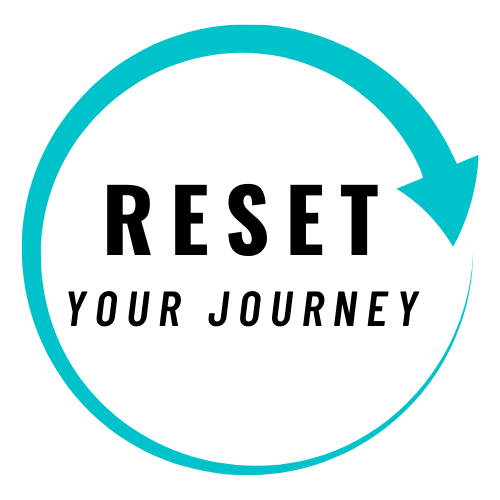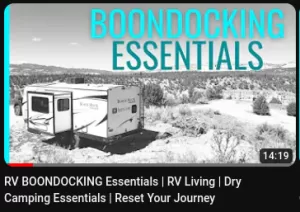Last Updated on 06/07/2024 by Glynn Willard
How To Choose The Best RV For You & Your Family
Your circumstances are different and unique to YOU when it comes to full-time RV living.
And your unique situation and variables will narrow down the list of recreational vehicles for full-time living.
Do you remember those “choose your own adventure” novels for kids?
If not, you get the idea.
This is the frame of mind you should adopt when shopping for the right RV to live in for a while.
Let’s start narrowing this down so you can make a great choice and NOT make an expensive mistake before hitting the open road.
You might find that your personal preference is not the most suitable RV for your situation.
Narrowing Down The List Of Different Types Of RVs
Begin your decision-making process for your best option by following this list before researching every RV.
I realize that even though I make that statement, we’ll all (me included) still research every RV known to man.
It’s part of the fun!
Just avoid getting caught up in the brilliant marketing of some RV manufacturers luring you into the wrong RV.
Let’s get started!
- What’s Your Camping Style?
- What Region Of The Country Will You Travel Most?
- What’s Your Preferred Climate To Camp In?
- How Often Will You Move While Full-Time RVing?
- How Many People Traveling With You?
- More storage space.
- A floor plan with some private space.
- A master bedroom for obvious reasons.
- Bunk beds if kids will be traveling with you.
- Larger living room for everyone to gather.
- A roomy kitchen and large booth dinette.
- A higher cargo carrying capacity (CCC). Read that as a low curb weight with a high gross vehicle weight rating (GVWR)
- How Much Privacy Do You Need Inside Your RV
- Do You Prefer A Towable RV Or Motorhome?
- Most class C and especially class A motorhomes offer plenty of living space and storage space.
- Bathroom stops and food breaks are a breeze on travel days.
- Both class A’s and class C’s are very comfortable to live in and drive.
- Many larger motorhomes are well equipped with a lot of optional features “out of the box.”
- A toad (towed vehicle) has minimal impact on a motorhome (except reversing).
- You’ll need a toad (towed vehicle) for a class A or class C RV.
- Fuel economy is seriously sub-par (especially for larger models).
- Navigating tight roads are more difficult without a pivot point in the middle.
- The price point for most motorhomes is higher.
- Expensive maintenance and upkeep
- Expensive RV insurance.
- Unless the motorhome has a short wheelbase, neither class A’s or C’s are great off road.
- My favorite: once you park it, you can use your tow vehicle as a “daily driver.”
- Towable RV’s are a great option if you have less money to spend.
- The right trailer can be just as comfortable as a nice motorhome (for a fraction of the price).
- A travel trailer with high ground clearance, the right suspension and a good tow vehicle do very well on rough terrain opening up endless free camping on public lands.
- Less expensive maintenance than a motorhome.
- Inexpensive RV insurance.
- Bathroom and food breaks require going outside. A downfall for many, but not me.
- It requires a unique skill set to tow a large trailer.
- Bearing and wheel maintenance. Enough said!
- Setup time takes a little longer than a motorhome unless you have to detach a toad.
- If A Motorhome, Do You Have a Towable Vehicle?
- If A Towable RV, Do You Have A Heavy Duty Tow Vehicle?
- A New Model RV Or A Used RV?
Different full-time RVers have different camping styles.
Your vision of the perfect situation might be living in RV resorts year-round, but your finances dictate otherwise.
Or maybe, like me, you visualize living in remote locations on BLM land boondocking the majority of the time.
These two very different camping styles require different types of RVs.
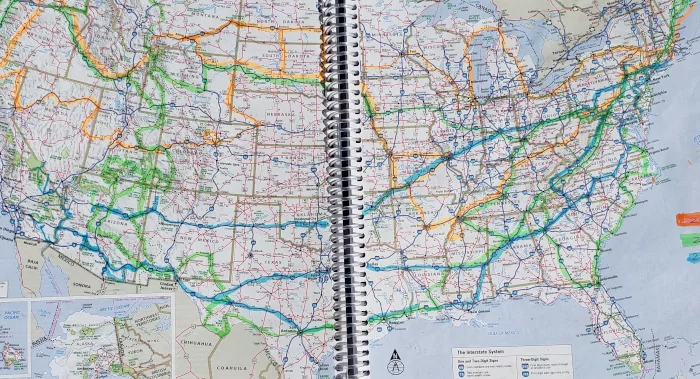
Travel the whole US or just one region?
Spending most of your time in the eastern United States will require the use of private RV parks.
But if you spend the majority of your time in and west of the Rocky Mountains, you can boondock for free indefinitely on public lands.
Boondocking near National Parks requires an RV that can navigate rough terrain.
Also, navigating a large RV around the northeast quadrant is far more difficult than anywhere else in the country.
That particular region is home to many low overpasses and parkways that exclude RVs.
We’ve found the northeast more manageable in our class B Roadtrek and super difficult in our 28′ ORV travel trailer.
The answer to this question weighs heavily on the type of RV you review.
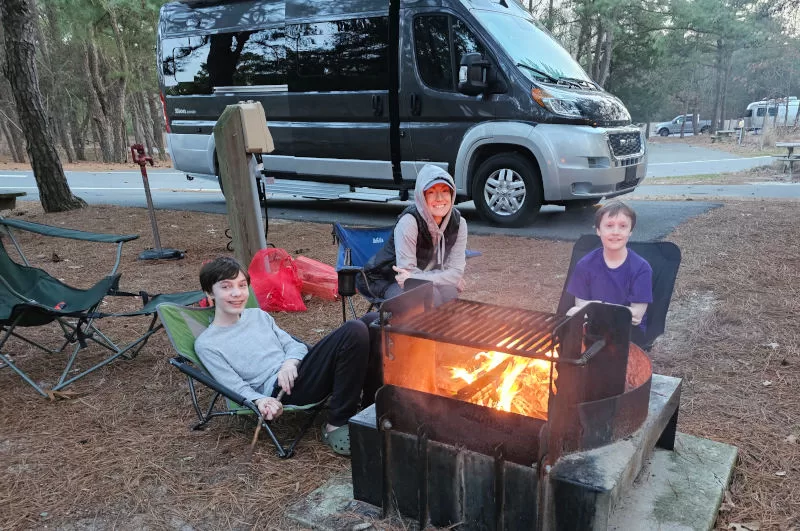
Most Rvers “chase 70 degrees” for good reason.
It’s comfortable and has less impact on an RV that’s poorly insulated.
We preferred to push the shoulder-seasons as well as stay in warmer climates on occasion.
This required a true four-season RV to better insulate against the cold weather and hot weather.
Other outlying Rvers prefer to stay exclusively in cold weather making serious use of insulation, space heaters, and a good propane heater.
Which group do you fall into?
If you’re not chasing 70 degrees, you need to consider a well-insulated RV designed for four seasons.
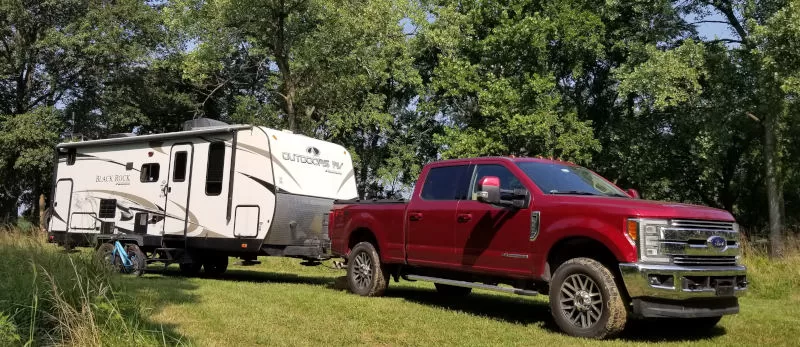
Moving once a month or season is seriously different than moving spontaneously every 3-10 days.
If you plan on moving frequently, an agile, easy-to-set-up RV is a better idea and will make your life a lot easier.
Class B RVs, truck campers, small class C RVs, and small towable RVs fit this category.
Set up and break down gets old fast when you go all in for the full-time RV life.
If you plan on moving infrequently, big fifth wheel RVs or a large class A RV is great.
One or two people living in an RV is very different than three-to-five people.
This goes beyond floor plans, easy access and how much space is available.
With more people in the RV, you’ll need the following to maintain the comforts of home:
Not Sure What You Need For Your RV?
This correlates with the previous section, but a young family needs separate spaces.
Not only do you need private space, but your kids will too.
A larger RV is necessary to accommodate personal space for multiple family members.
I know, I know, you can call me “Captain Obvious!”
The four of us travel part-time in a class B Roadtrek and by the third week, we’re desperate for our own private space!
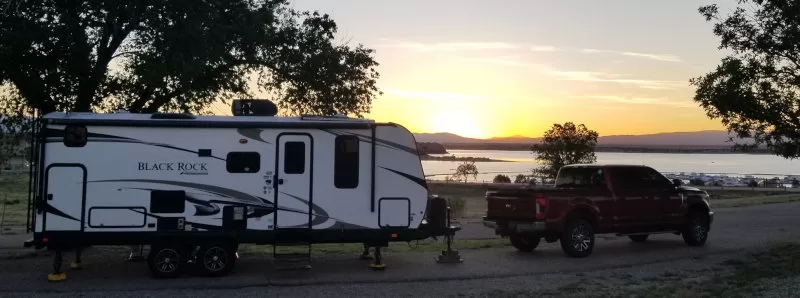
When we began our full-time adventure, we visualized a large Super-C motorhome.
Just think of all that cargo capacity, living space, and power!
That direction would not have been the best choice for our travel style.
Why didn’t I initially want a towable RV?
Like many people, I had never towed anything in my life.
And it scared the poo out of me even though I knew I would eventually master towing.
Turns out that going with a towable for our first full-time RV was the best choice ever!
So before pursuing your vision of full-time RVing, consider the following pros and cons.
Pros To A Motorhome
Cons To A Motorhome
I realize there are some exceptions in the class C world.
Pros To A Towable RV
Cons To A Towable RV
There are more pros and cons, many of which are subjective.
But what’s listed here is important for you to consider and factor into your equation as to the best RV for you.
It’s shocking how few of the newer automobiles can be towed four-down.
If you’re a member of FMCA, they publish the ultimate guide to towable cars and trucks annually.
It’s great information.
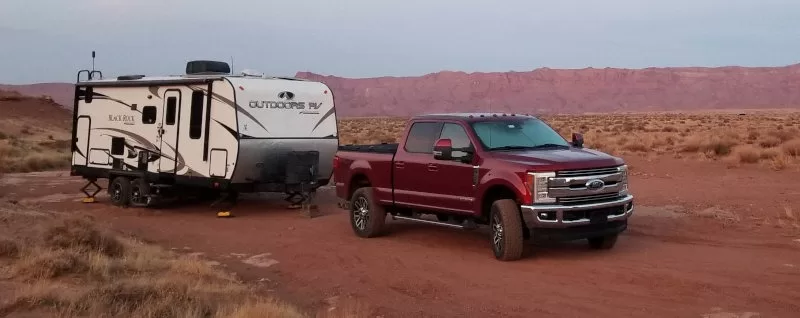
I cannot emphasize this enough. Most travel trailers and any 5th wheel trailer needs, at a minimum a 3/4 ton tow vehicle.
Start by learning about the payload capacity of the truck and the tongue weight of the trailer you’re considering.
Stay within those parameters when shopping. Not what a particular engine can pull.
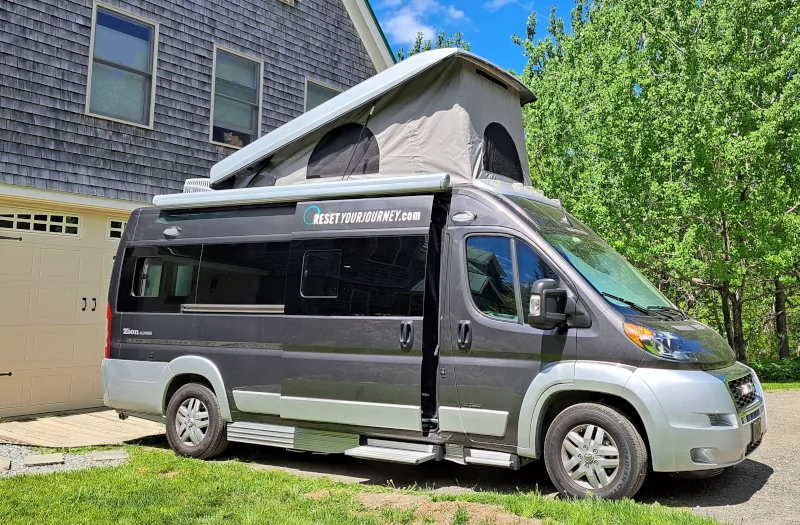
Our new Roadtrek had minor issues that needed “ironing out.”
This is an easy question to answer.
I’ve had both and the higher price and annoyance of ironing out the manufacturing defects of a new RV gets old fast.
When we bought our used RV, it was only three years old and already had the kinks worked out.
Not only did I save money, but I didn’t have to constantly fix items that were missed in the manufacturing quality control.
Do yourself a favor and thoroughly shop the used market.
Not only will you save money and headaches, it will likely also be equipped with aftermarket upgrades such as solar panels and better batteries.
What’s The Best Type Of RV Based On The Above Criteria?

Boondocking in beautiful Colorado!
In my experience, a travel trailer offers the following making it the best for full-time RVing.
- You can get “a lot of RV” for a lower price, i.e., a better bang for the buck.
- One engine to maintain.
- It offers the most versatility for all the types of terrain opening up the world of dispersed camping.
- On that same note, spending more on a high quality trailer will save you money by avoiding RV parks.
- Set it up and leave it easily to explore in your tow vehicle.
- Your pick-up truck can easily bring a lot of supplies back to your trailer when you’re stationary.
- If you’re a full time family, every member can have their own space for a fraction of the cost of a larger motorhome.
We’ve spent a lot of time on the road in both types of RVs and spoken to countless other full-timers and continue to draw the same conclusion, that a towable RV is the best place to begin the full-time lifestyle.
Best RV For Full Time Living With Kids
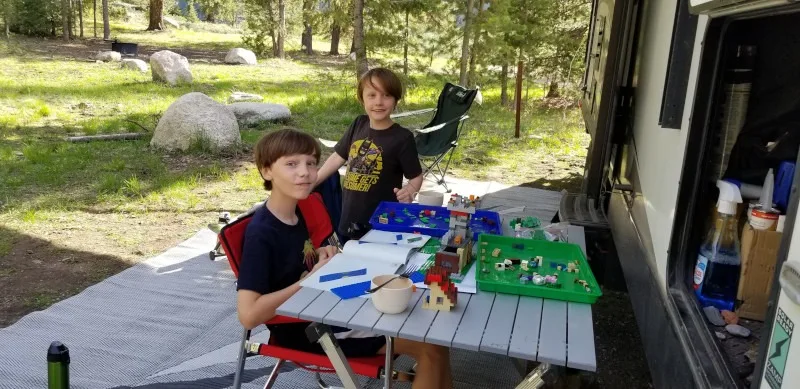
Life on the road is amazing!
It’s easy to get caught up in “your needs for an RV” since you’re the one buying.
But put real effort into seeing this hole full-time endeavor from your kids perspective.
To them, a bunk room is not only a place to sleep, but it’s also their “personal cave.”
The most important aspects to full timing with kids are:
- Each family member has their own sleeping space. Prioritize a bunkhouse RV.
- You don’t have to set up and break down any family member’s bed to move the RV. Only consider a sofa bed if you have a really large family.
- There’s enough room for the whole family to maintain some level of comfort.
- You and your partner have your own private master bedroom and workspace, especially for large families.
- There’s enough cargo space for each person to bring their most important (to them) things without over-packing.
- A large enough kitchen to easily prepare all the meals necessary for the family.
Toy haulers make great full-time trailers for kids because of the high weight limits, living area, and adjustable overhead bunk.
If you’re considering class C motorhomes (or class A), use a “chase” vehicle so that young kids have legitimate seat belts for safety.
After traveling in our campervan with our kids, I can honestly say that camper vans are not the best way to full-time with kids!
The small space is just too cramped for anything longer than a week or two.
The bottom line, if there are four-five of you, a towable RV is a good idea because it checks all the boxes for the least amount of total money spent.
Pro tip: Do a mix of boondocking, state parks and the occasional RV park for your kids to be exposed to all aspects of the RV life.
Wrapping Up Finding The Perfect RV For You
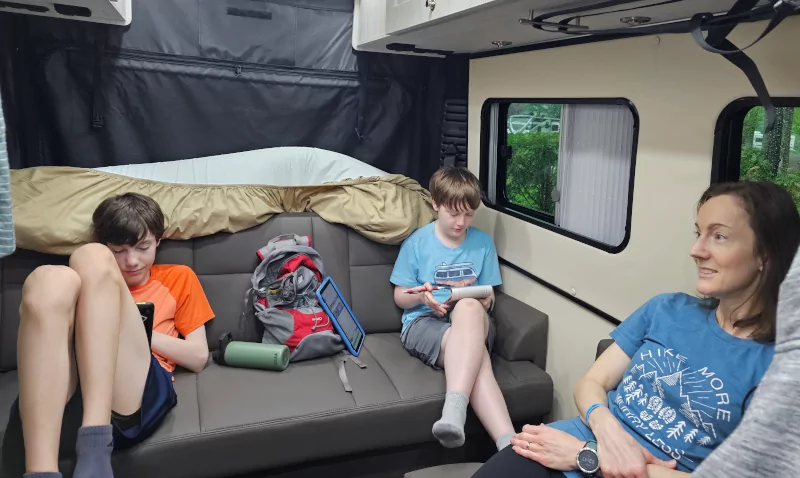
Notice, I did not specify any manufacturers or the best camper, but only the best type of RV for full time living.
I go into more detail about the top travel trailers for full-time in another article as well as the best campervans for families.
So, to sum it up, in my experienced opinion, a travel trailer is the best RV to start with for full-time RV living.
If you just scrolled to the end, please go back and review the list of considerations before shopping the most suitable RV for your full-time experience.
If you’re experienced, what RV has best suited you for full-time?
Meet the author.
We appreciate any help in bringing you great content. Donate or buy us a coffee on our Ko-Fi site. Or subscribe to our YouTube Channel.
Thank you so much for being here!

